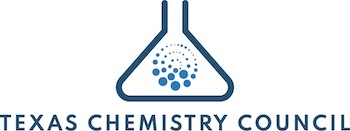Complete Story
05/09/2025
Texas Bottle Bill Plan Has Bipartisan Support, PET Industry Backing
Plastics News | Steve Toloken | May 8, 2025
Texas Bottle Bill Plan Has Bipartisan Support, PET Industry Backing
It's been decades since any U.S. state passed a new bottle bill, but some see opportunity in a very unlikely spot, Texas, where a bipartisan coalition of lawmakers has gained traction with a plan backed by some plastics and packaging groups.
An effort led by Republican state House lawmakers cleared a key legislative hurdle May 2, passing out of the environment committee on a bipartisan 6-0 vote.
It has the backing of PET industry groups as well as bottled water makers and environmental organizations, while the Texas Chemistry Council, the alcohol industry and some solid waste management companies are lining up against it.
The bill's main author in the House, state Rep. John Lujan, R-San Antonio, framed it as a free-market solution that will raise container recycling rates and expand access to locally sourced materials for recycling industries, without using tax dollars.
"This bill is about Texas businesses leading a Texas solution," Lujan said. "It gives businesses the tools they need to stay competitive, drive innovation and turn waste into economic opportunity without asking taxpayers to foot the bill."
He said that's because the legislation would turn operations of the bottle bill program over to an industry-run consortium, which would design the system and finance it through unredeemed deposits and selling recyclable materials.
Companies would be required to join the program, however, which is a source of some industry opposition.
The legislation says the industry-run consortium would be required to achieve a 75 percent container recycling rate in the state by 2035 or face financial penalties.
The Texas Chemistry Council argued instead for a voluntary program, saying its members have had a lot of discussion on improving recycling in the state.
"The consensus from those conversations and direction from the board was it would be better to have a voluntary based incentive approach," said Logan Harrell, TCC general counsel. "[The legislation] compels private businesses to participate in the consortium and requires payment for fees into the program. Our members can't support a program that assesses fees against our customers."
Retail stores and beverage makers sometimes object to bottle bills because they put administrative burdens on those sectors.
Advocates for the legislation said states with bottle bills, however, typically recycle about 70 percent of their containers, compared with, for example, about 30 percent of PET containers nationwide.
A witness from the Recycling Partnership testifying at an April 24 hearing said Texas "underperforms" in collecting commonly recycled packaging like PET bottles and aluminum cans.
The state recycles about 17 percent of its PET bottles, compared with 28 percent nationally, the group said.
"These are materials that can feed Texas manufacturers and generate economic value instead of waste," said Sarah Kaylor, vice president of development for the partnership.
Similar debates are playing out in other states, like Rhode Island, where packaging industry groups have been pushing for a bottle bill, echoing the economic arguments of some industry in Texas.
PET industry support
The head of Texans for Clean Water, which supports the bill, said industry support is growing, pointing to letters to the state legislature backing it from the PET Resin Association, the Aluminum Association and the International Bottled Water Association.
As well, the National Association for PET Container Resources (NAPCOR) posted a blog endorsing the Texas legislation.
"These are big groups that have said, OK, listen, we have to have policy, and we have to have policy that works," said TCW President Maia Corbitt.
TCW has been pushing recycling legislation in Texas for several years, including a 2021 plan that would have put a 1-cent fee on plastic bags, retail drink cups and PET bottles to finance recycling. That plan had the backing of NAPCOR.
In a letter backing the legislation, the PET Resin Association called it "well-crafted" and said Texas plastic bottle recycling plants need to import material to meet demand.
"To meet customer and consumer demands for post-consumer recycled content in packaging, Texas PET recycling facilities must import plastic feedstock from other states, primarily California and countries like China," Petra said. "At this time, PET recycling facilities in Texas are working under capacity due to the lack of local PET collected in Texas."
There's some suggestion of splits within the plastics resin industry.
While the Texas Chemistry Council opposes it, the state government affairs director for Dow Inc., Sam Gammage, was listed in a legislative report on the April 24 hearing as registering in support of the bill, known as HB 2048.
‘Ripe' for movement
It's not at all clear if the legislation will advance. Some observers said it's still an uphill climb, with short sessions that make it hard to move any kind of legislation in Texas.
An identical bill in the state Senate remains stuck in committee, where its main sponsor is a Democrat. Both chambers in Texas are about two-thirds controlled by Republicans.
In the House, after advancing through the environmental regulations committee, the legislation faces a May 13 deadline to be put on the calendar for floor vote to keep it alive.
But Corbitt said that if the bill doesn't pass this year, advancing it through the committee in a bipartisan vote builds support for the next legislative session, in 2027. The bill had seven Republican and five Democratic co-sponsors in the House as of May 6.
"Even if we don't have final passage this year … I think 2027 is ripe for real, real movement," she said. "Texas is possible. Big red states are possible and necessary."
Corbitt said she sees the economic arguments for a bottle bill gaining ground, with the state throwing away most of its PET, glass and aluminum beverage containers and businesses hungry for raw materials.
"Texas is the largest untapped resource for recycled commodities in this country," she said.

